The patent is confirmed! The United States Patent Application no 20210232024 published on Jul 29, 2021, shows clearly that Canon is developing a high-end compact cinema camera that is capable of shooting ultra high resolution, owns a large sensor, internal NDs, and looks and operates almost identical to the RED Komodo. All major details are below.
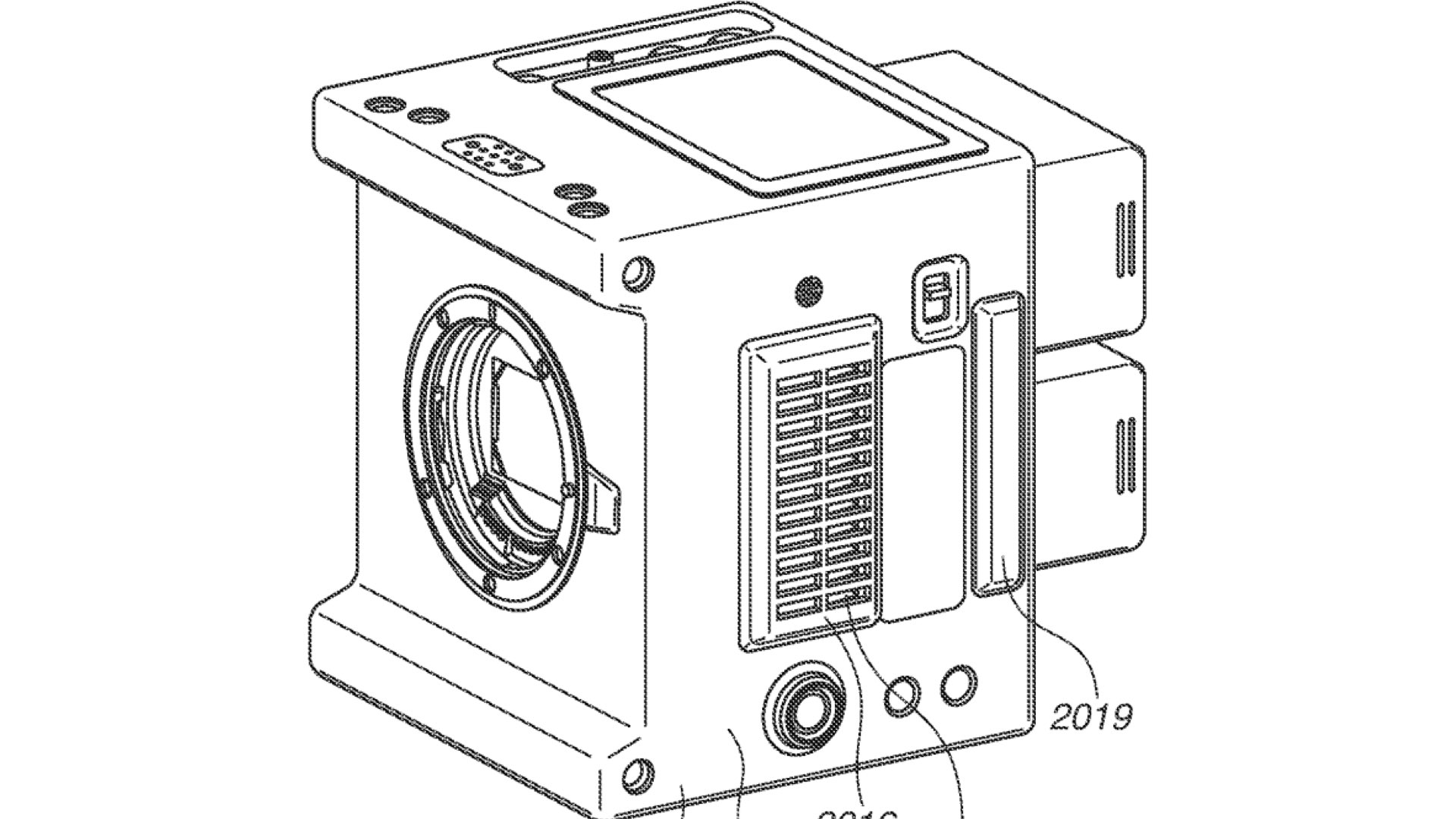
Yep, this is a real patent
As we’ve previously reported, a patent application by Canon, of a new cinema camera spotted, seems to be real. To be honest, we had a ton of doubt since the application describes a camera that looks identical to RED Digital Cinema Komodo. A pure copycat. However, we found the application. Basically, it seems that Canon is aiming to develop a high-end cinema camera that is capable of shooting ultra high resolution (even beyond 8K) and owns a large sensor. All the major details are quoted below.
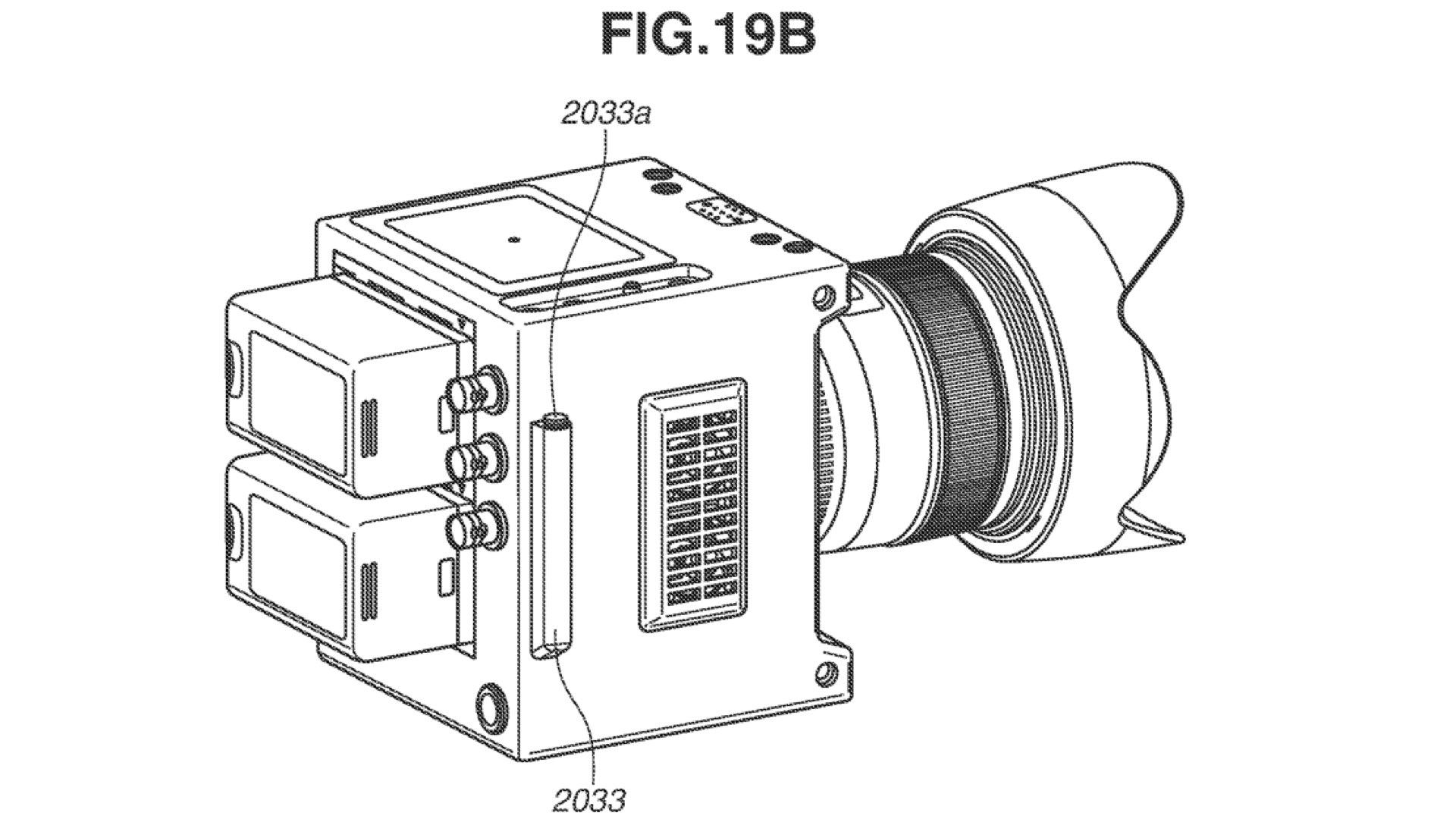
Patent (camera) Description:
An interchangeable lens imaging apparatus in which a lens device is attachable to and detachable from a mount formed on a front surface of a camera body is known. There is an interchangeable lens imaging apparatus in which the distance from a lens mount to an image sensor is very short, such as a mirrorless camera in which a reflecting mirror for guiding light incident on a lens device to an optical viewfinder does not exist.
Right side of the camera: REC button
On the right side surface side of the imaging apparatus as viewed from the front, further, a REC button (recording start/end button) that is operated by a photographer, and operation keys for changing camera settings are provided. Further, a microphone unit that records voice, and a card storage cover that covers a storage chamber for storing a memory card, which is a recording medium, are provided.
Upper side of the camera: A display unit
On the upper surface side of the imaging apparatus, a display unit that displays an image captured by the imaging apparatus or an image capturing setting menu, and operation keys for a user to change image capturing settings are provided. Further, tripod female threads to 1700d for fixing an external accessory, and electrical contacts for communicating with the external accessory are provided.
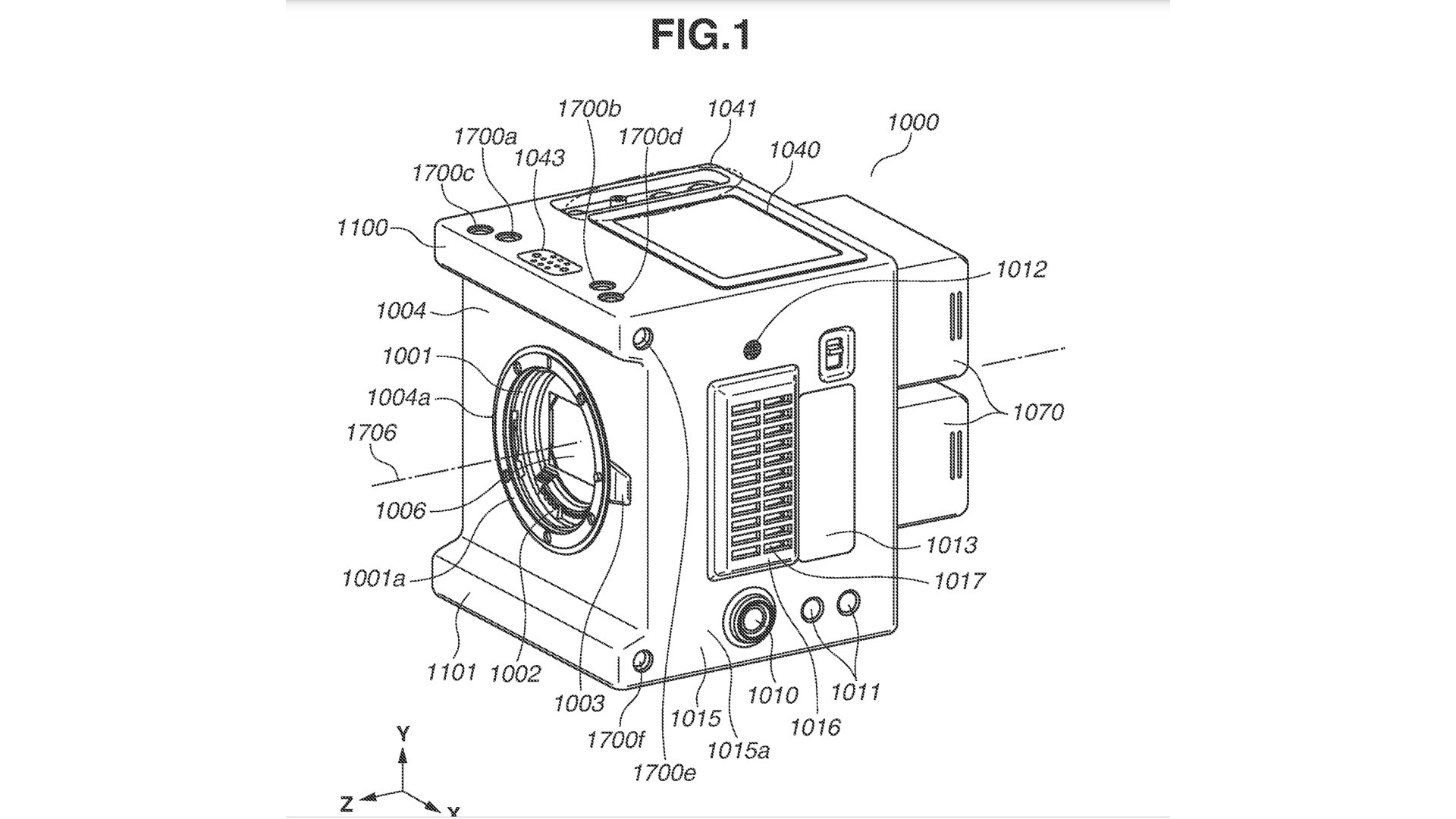
External accessories
The external accessory is, for example, a display panel that displays a captured image or a recorded image, a handle unit into which a microphone terminal is built, or an external communication terminal such as a smartphone. If the external communication terminal such as a smartphone is connected to the imaging apparatus, the user may set the image capturing menu of the imaging apparatus or give an image capturing instruction through the external communication terminal, and a captured image or a recorded image may be displayed on a display screen of the external communication terminal.
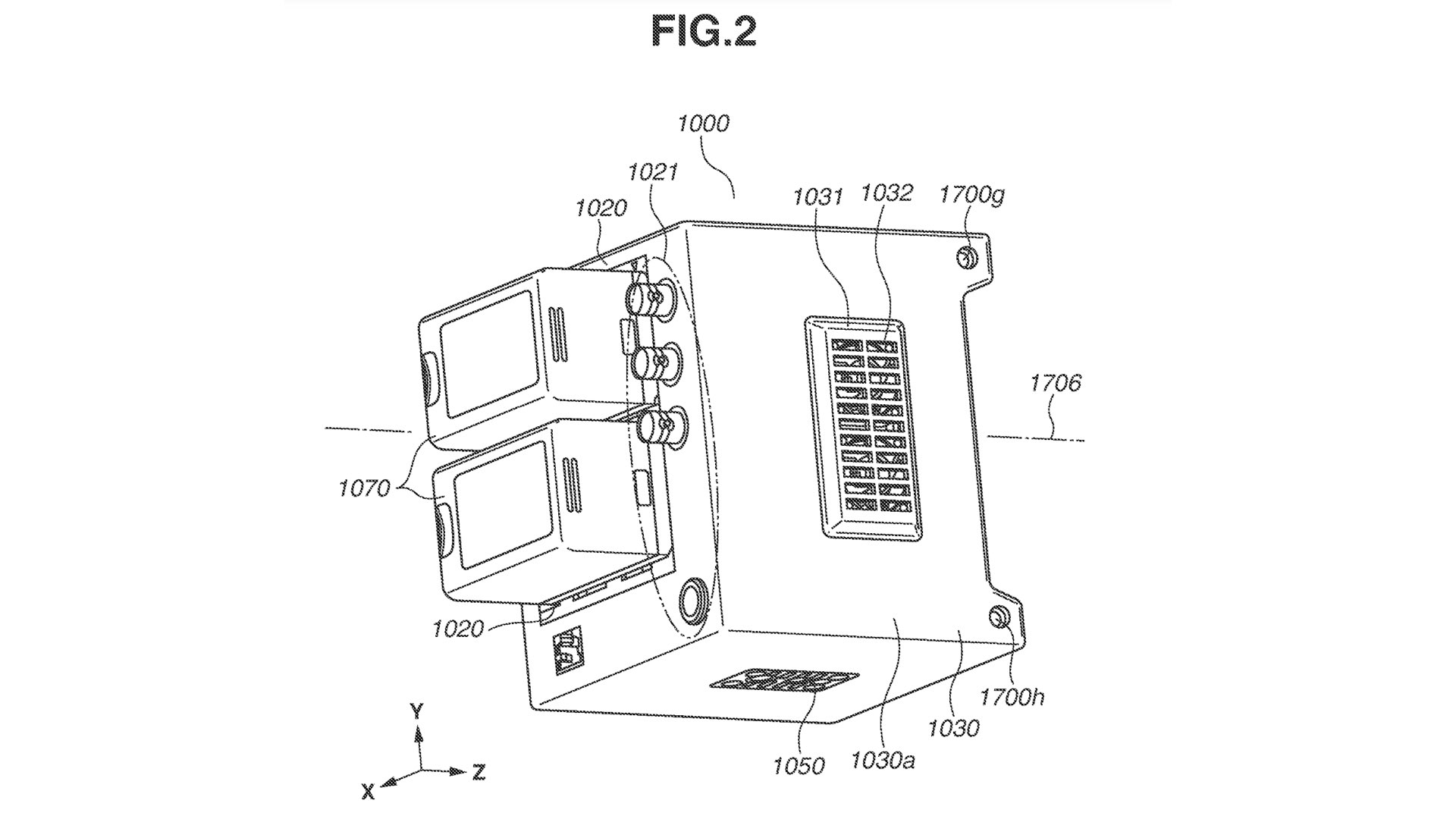
Controlled via mobile
A configuration may be employed in which the external accessory and the imaging apparatus are connected together using not only a wired connection via the electrical contacts but also a wireless local area network (LAN) based on Wireless Fidelity (Wi-Fi) or a wireless communication function provided in the smartphone. For example, a mobile phone line based on the fourth-generation mobile communication system or the fifth-generation mobile communication system may be used. Further, a configuration may be employed in which the imaging apparatus wirelessly communicates with the outside via the external accessory.
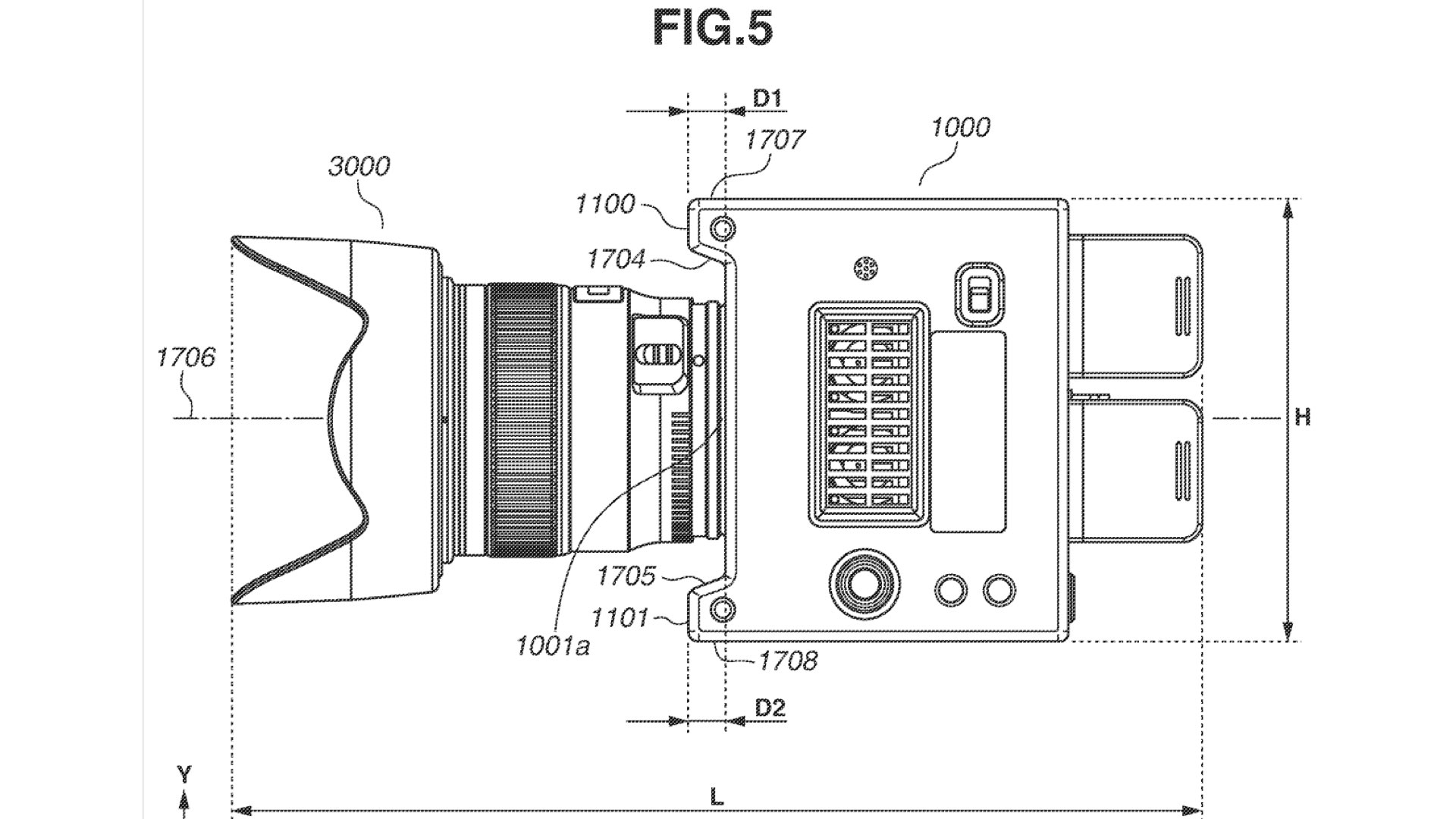
Batteries: Two, but one is enough
On the back surface side of the imaging apparatus, battery storage portions that store batteries 1070, and an external input/output terminals 1021 including an external connection terminal and a power supply terminal are provided. The battery storage portions are placed in two places one above the other, whereby, even in a case where one of the batteries runs out, the other battery can feed power. Thus, it is possible to continuously use the camera by replacing the battery without turning off the camera.
Built-in ND filters
Between the lens mount and the image sensor, a neutral density (ND) unit is provided and fixed to the image sensor holding member with screws. The ND unit includes a plurality of ND filters having different densities as optical components. The ND filters reduce incident light, whereby it is possible to decrease the shutter speed or open the diaphragm of the lens device when capturing an image.
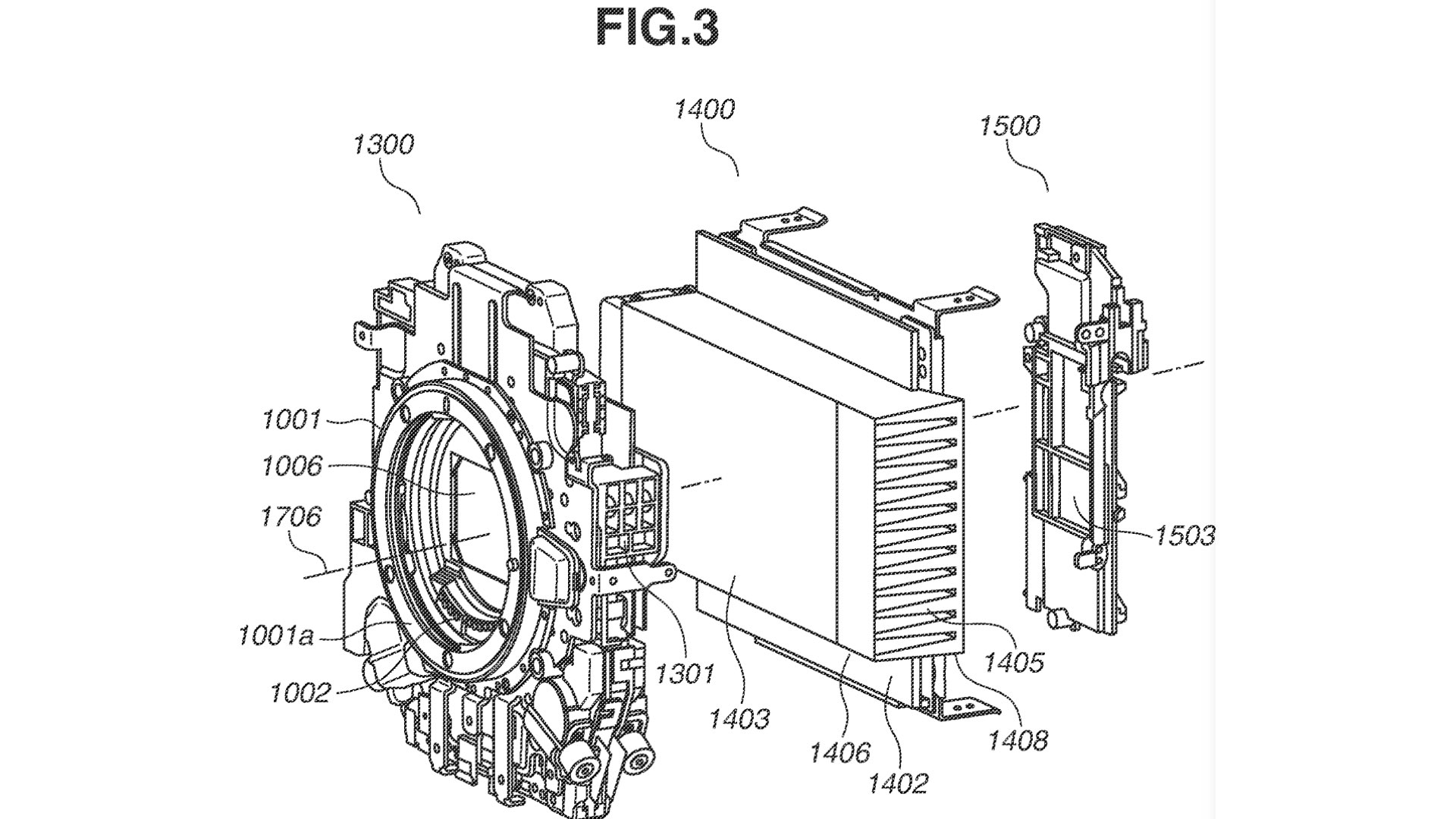
Heat dissipation mechanism
The main unit includes the main substrate that controls the operation of the imaging apparatus, a heat sink thermally connected to the main substrate, a heat dissipation plate that covers the heat sink, and fans that send air into the heat sink. The heat sink 1402 is molded by aluminum die casting, which has excellent heat conductivity.
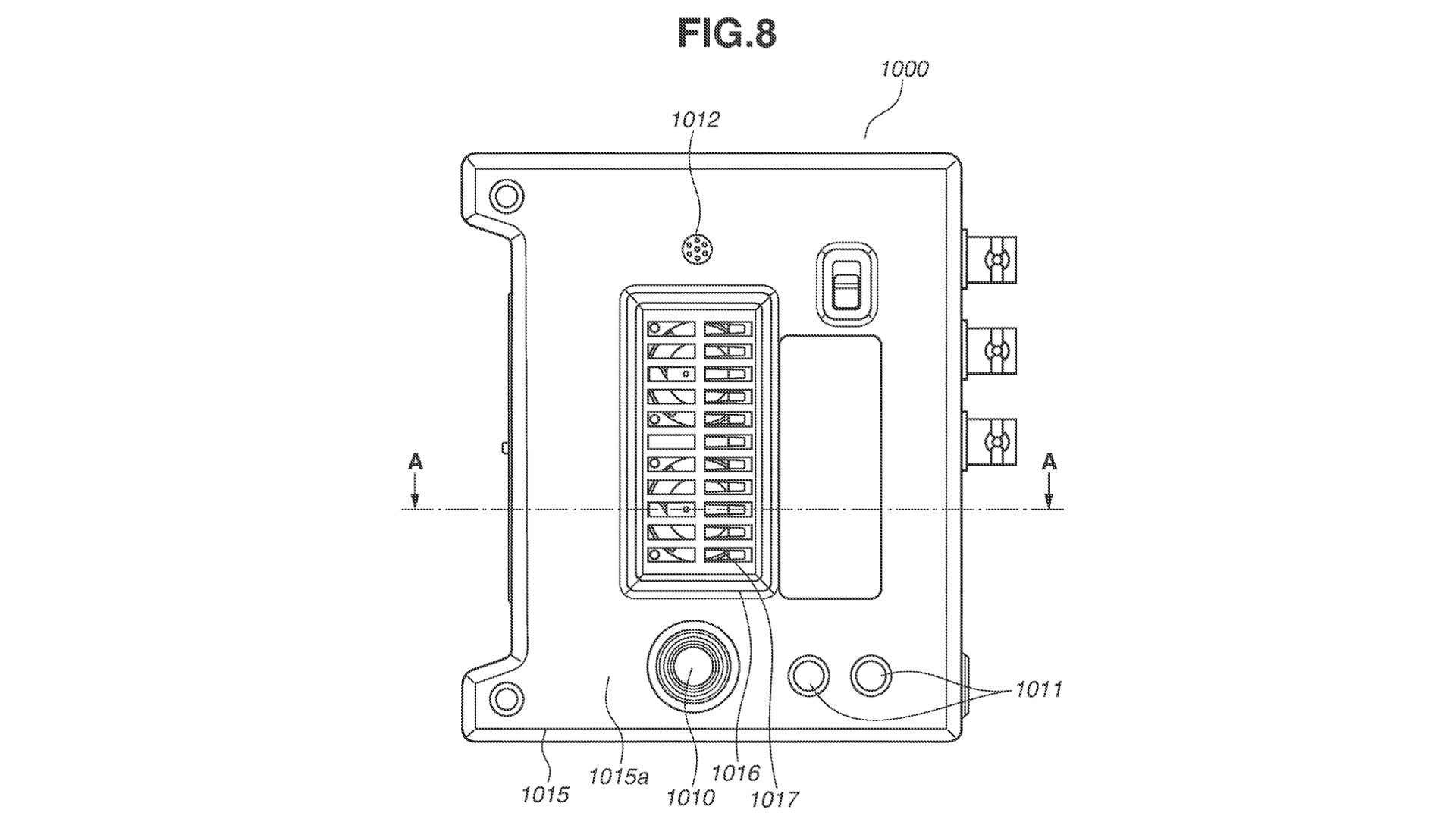
Sensor: CCD or CMOS with Dual-Pixel AF
The image sensor is a charge-coupled device (CCD) sensor or a complementary metal-oxide-semiconductor (CMOS) sensor and includes an analog-to-digital (A/D) converter. The image sensor includes a plurality of phase difference detection pixels. The video signal processing unit can perform a correlation calculation using signals output from the plurality of phase difference detection pixels, and based on the result of the correlation calculation, control the focal position of the attached lens device, thereby performing autofocus using an imaging plane phase difference detection method.
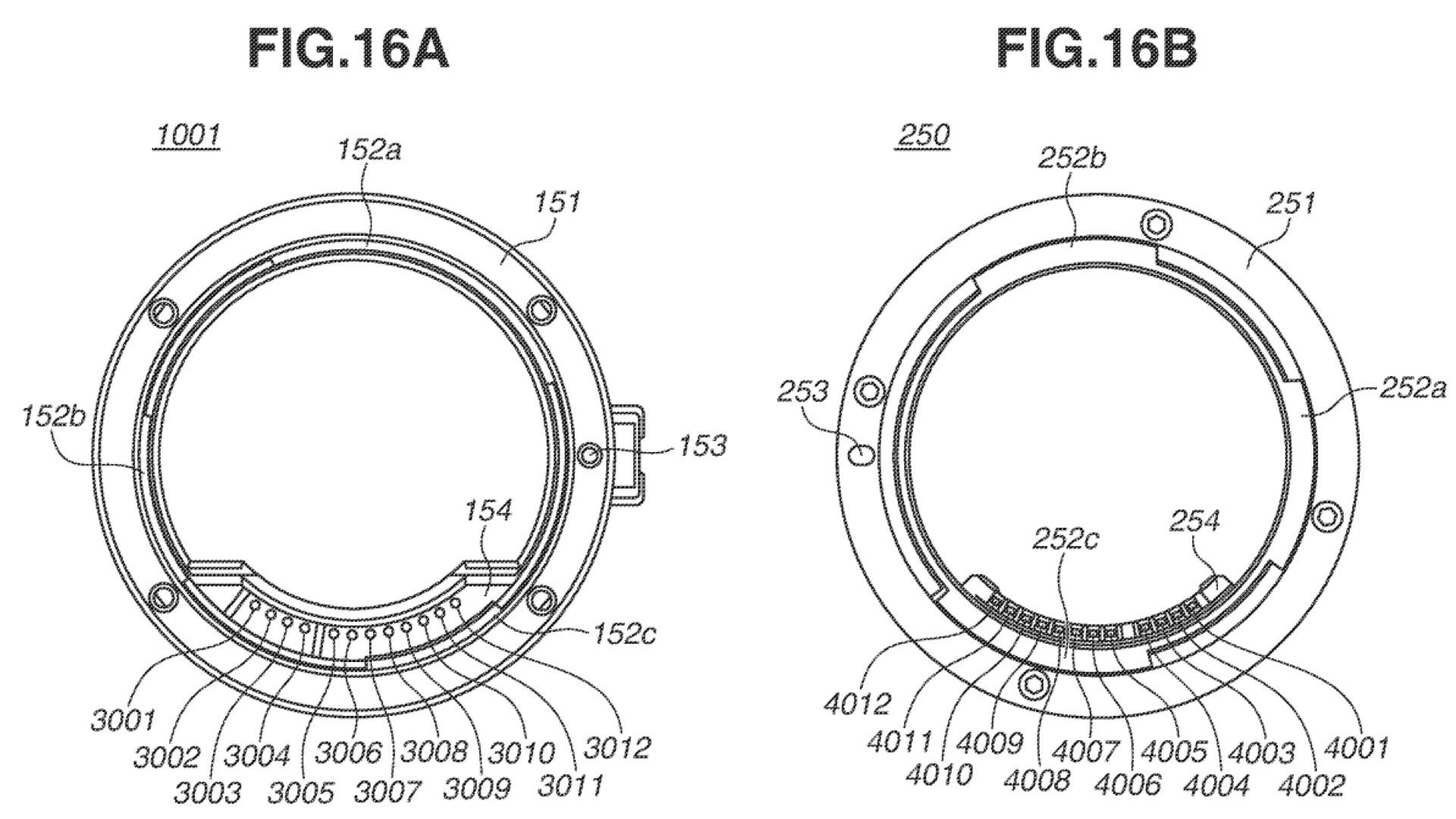
Sensor size: Full frame – medium format (?)
The image sensor can be in the range from approximately 0.5 inches (8 mm), ⅔ inches, the S35 format for movies, 35 mm full-frame still, and can be at least approximately 1.0 inches or 6×17 cm or more. The image sensor can also have a size of at least approximately 10.1×5.35 mm, 24.4×13 7 mm, 30×15 mm, 36×24 mm, 56×42 mm, or 186×56 mm.
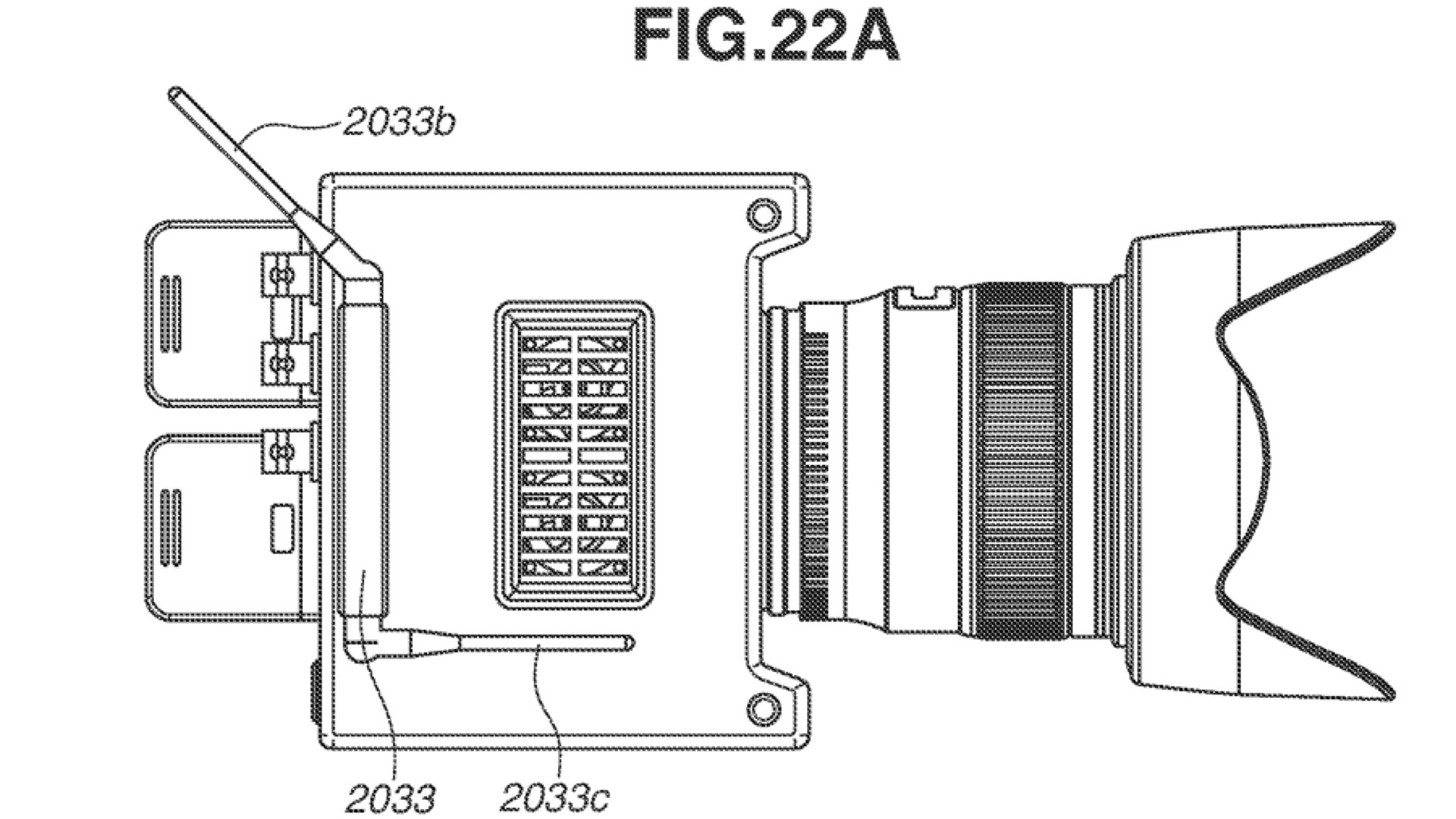
Multiple recording formats
When the photographer selects recording, the video data generated by the video signal processing unit is subjected to predetermined processing, thereby being converted into various formats. Then, the video data is sent to the card substrate and saved as a video in a recording medium. On the other hand, in a case where a predetermined connector is connected to the external connection terminal, the video signal processing unit can output the video signal to the external connection terminal, thereby transmitting the video signal to an external device.
Frames per seconds: High FPS
In the imaging apparatus according to the present exemplary embodiment, for example, light received by the image sensor is converted into digital image data of at least approximately 23 frames/second (fps), and the digital image data is recorded in the recording medium by the card substrate. The frame rate can be set in the range of approximately 1 to 250 fps or more. For example, the imaging apparatus may change the frame rate according to the set resolution. That is, in a “5K” resolution mode, the frame rate is set to approximately 1 to 100 fps. In a “4K” resolution mode, the frame rate is set to approximately 1 to 125 fps. In a quad high definition (QHD) mode, the frame rate is set to approximately 1 to 125 fps. In a “3K” resolution mode, the frame rate is set to approximately 1 to 160 fps. In a “2K” resolution mode, the frame rate is set to approximately 1 to 250 fps. For example, the frame rate may be set to 20, 23.976, 24, 30, 60, or 120 frames/second, or another frame rate between these frame rates, or a frame rate greater than or equal to these frame rates.
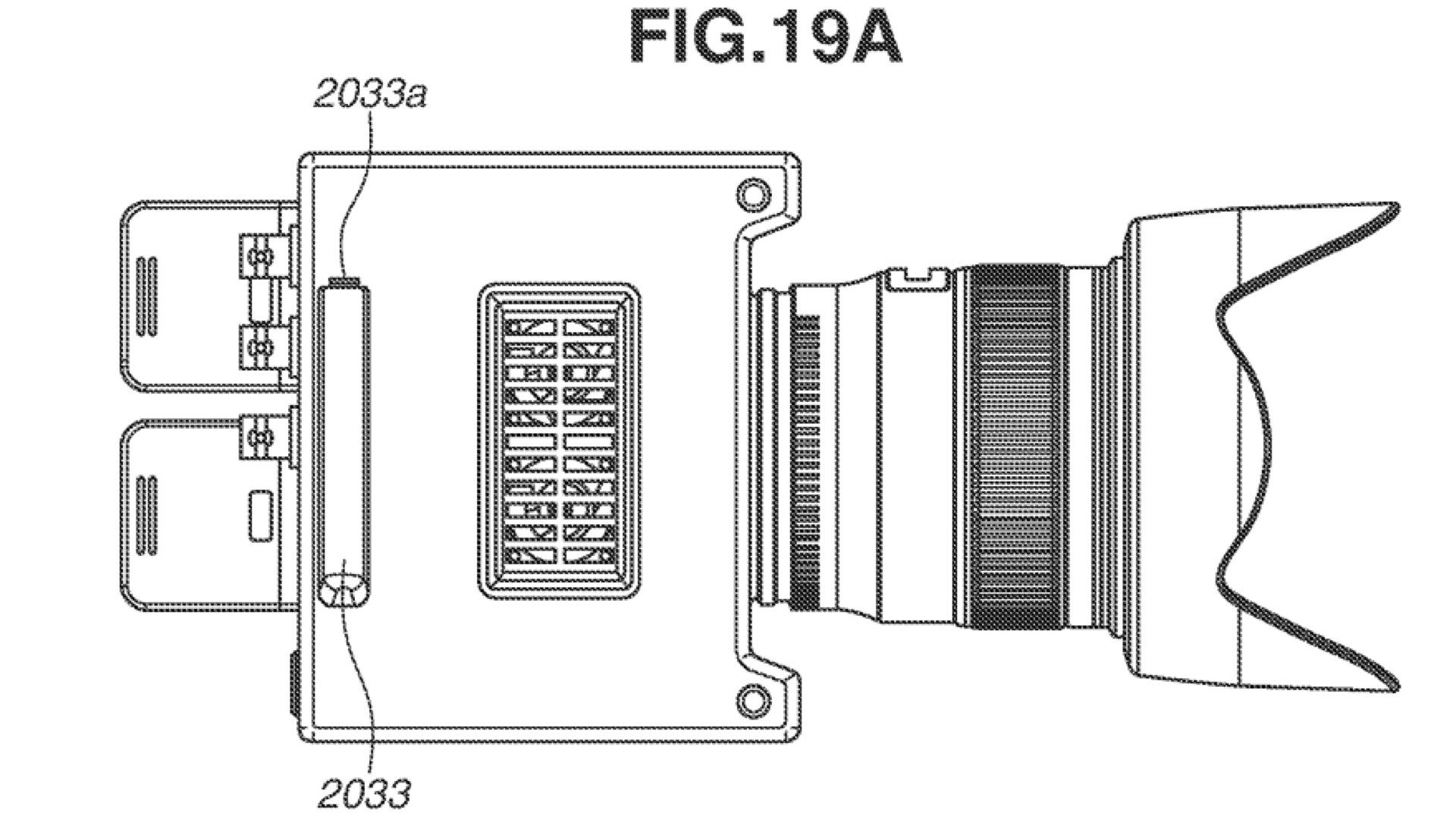
Resolution: 8K and above
The imaging apparatus can output image data with a “2K” resolution (e.g., 16:9 (2048×1152 pixels) or 2:1 (2048×1024 pixels)) or a “3K” resolution (e.g., 16:9 (3072×1728 pixels) or 2:1 (3072×1536 pixels)). The imaging apparatus 1000 can also output image data with a “4K” resolution (e.g., 4096×2540 pixels, 16:9 (4096×2304 pixels), or 2:1 (4096×2048 pixels)) or a “4.5K” horizontal resolution. The imaging apparatus can also output image data based on QHD (e.g., 3840×2160 pixels) or with a “5K” horizontal resolution (e.g., 5120×2700), a “6K” resolution (e.g., 6144×3160), or an “8K” resolution (e.g., 7680×4320). Further, the imaging apparatus can output image data with a resolution greater than or equal to these resolutions. The imaging apparatus can be configured to record or output image data having at least a horizontal resolution between any of the above resolutions. Further, the resolution is at least one value between the above values (or any value between the above values), and can take approximately 6.5K, 7K, 8K, 9K, or 10K, or any value between these values. In the present exemplary embodiment, in a term represented in an xK format (2K, 4K, and the like), the number of “x” refers to an approximate horizontal resolution. A “4K” resolution corresponds to approximately 4000 or more horizontal pixels. A “2K” resolution corresponds to approximately 2000 or more horizontal pixels.
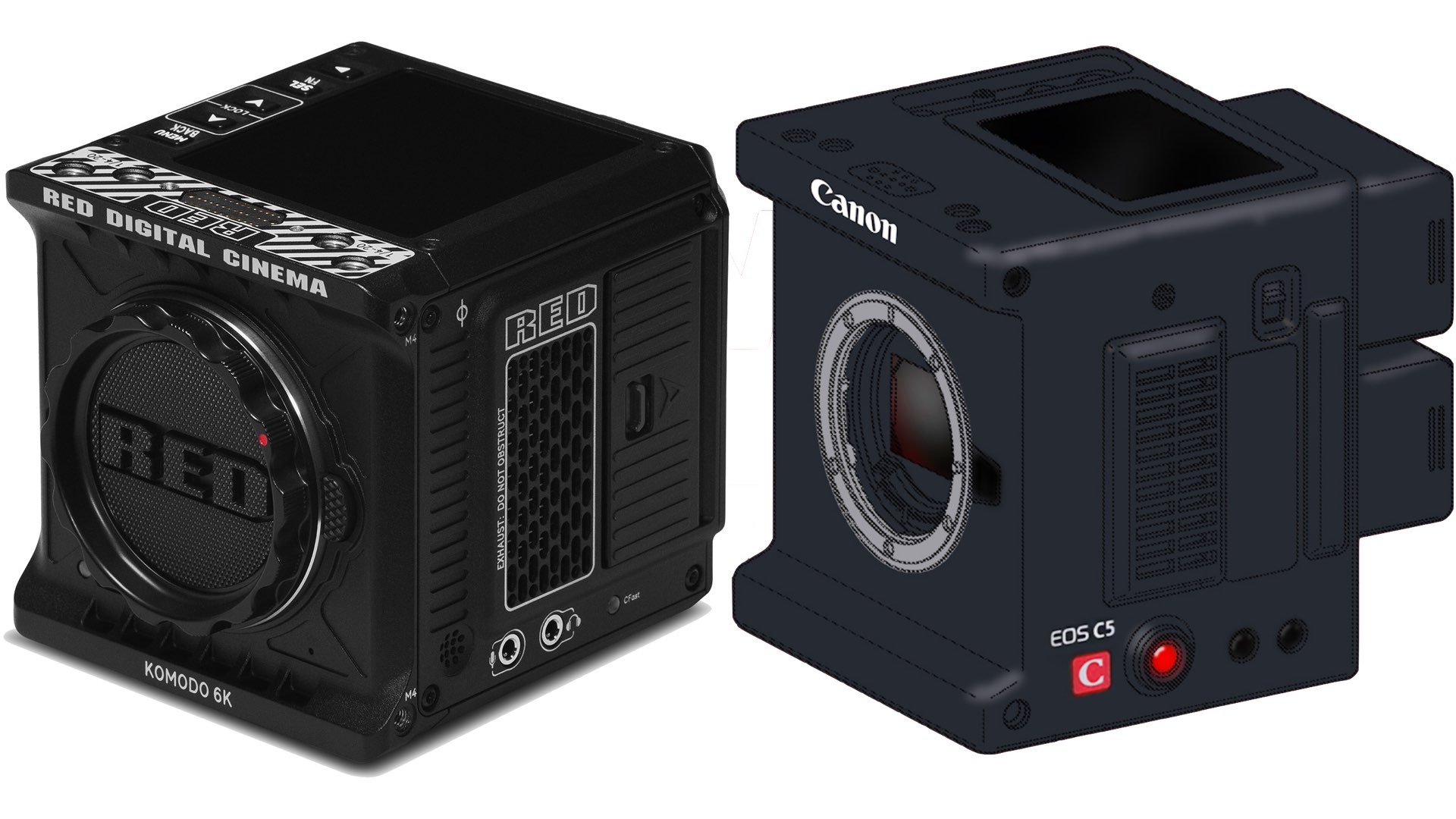
Summary
This boxy-sized cinema camera seems like a very ambitious project by Canon. Large sensor, 8K (or even 10K) resolution, internal ND filters, smart power consumption, and more essential options for cinematographers, are powerful specs that can transform this camera into the best-selling Cinema EOS camera. There’s no info about global shutter though – which is missing in the application. But we’ll say it again. This is a pure copycat of the RED Komodo regarding the design and function. It will be fascinating to reveal more info about the actual announcement of this super intriguing camera.
Product List
Here’re the products mentioned in the article, and the links to purchase them from authorized dealers.
- RED Digital Cinema Komodo 6K Camera

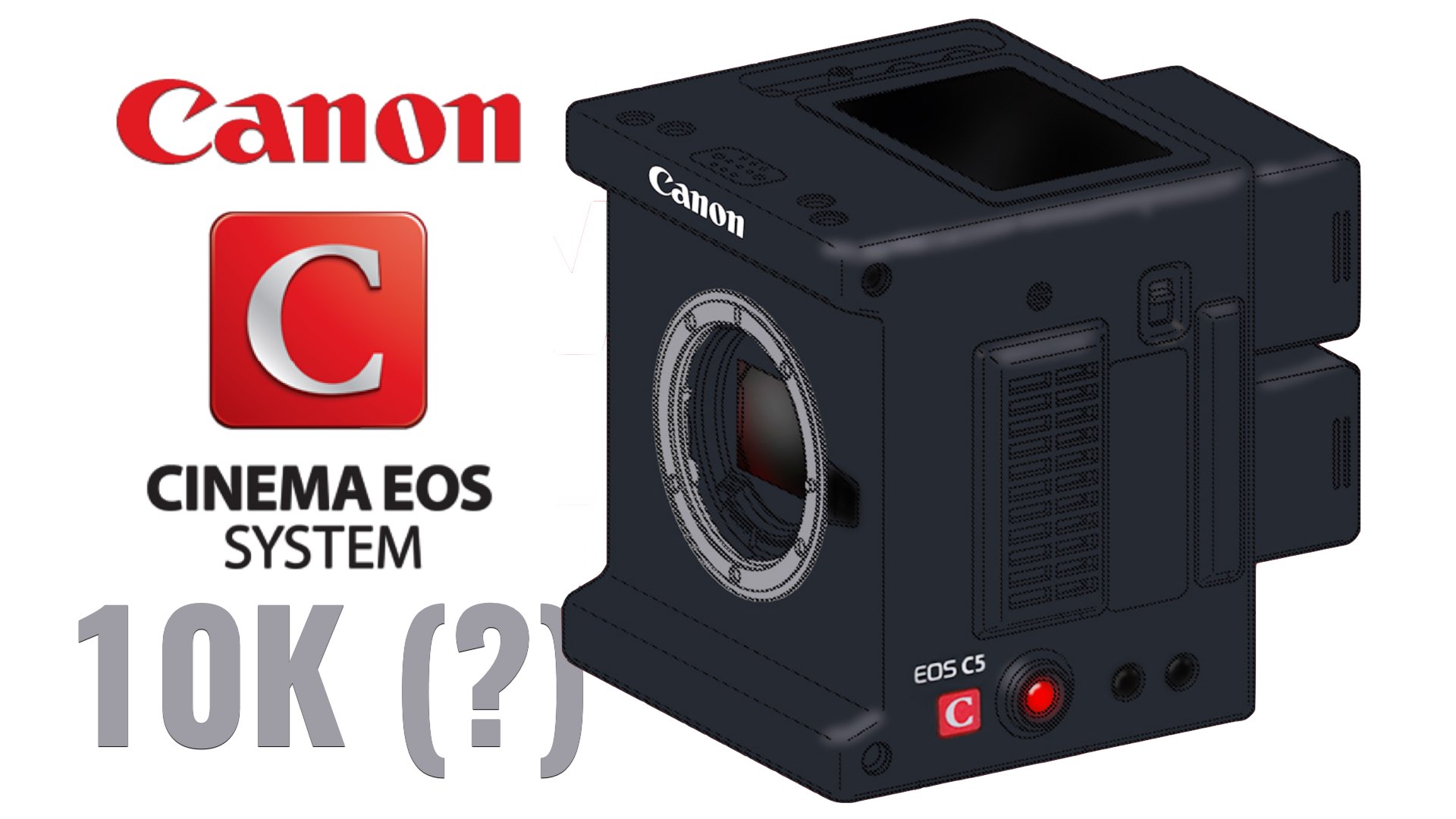

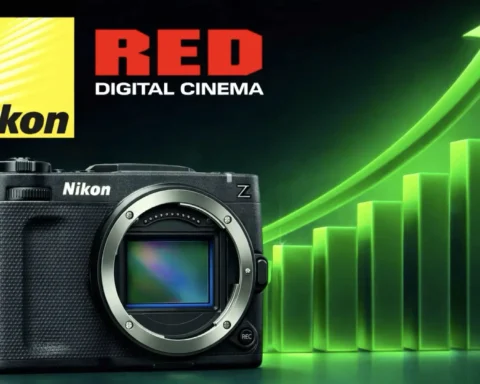
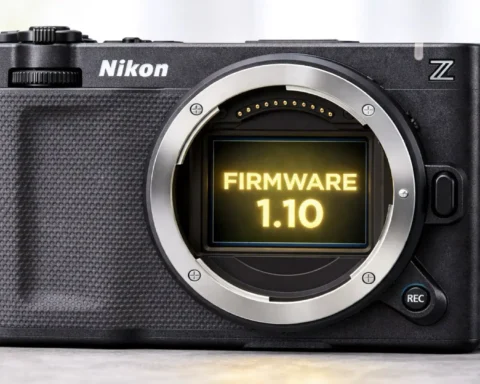

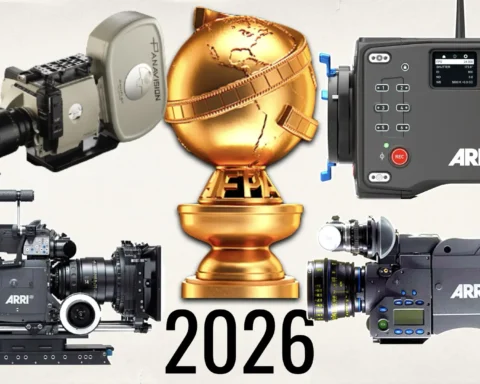


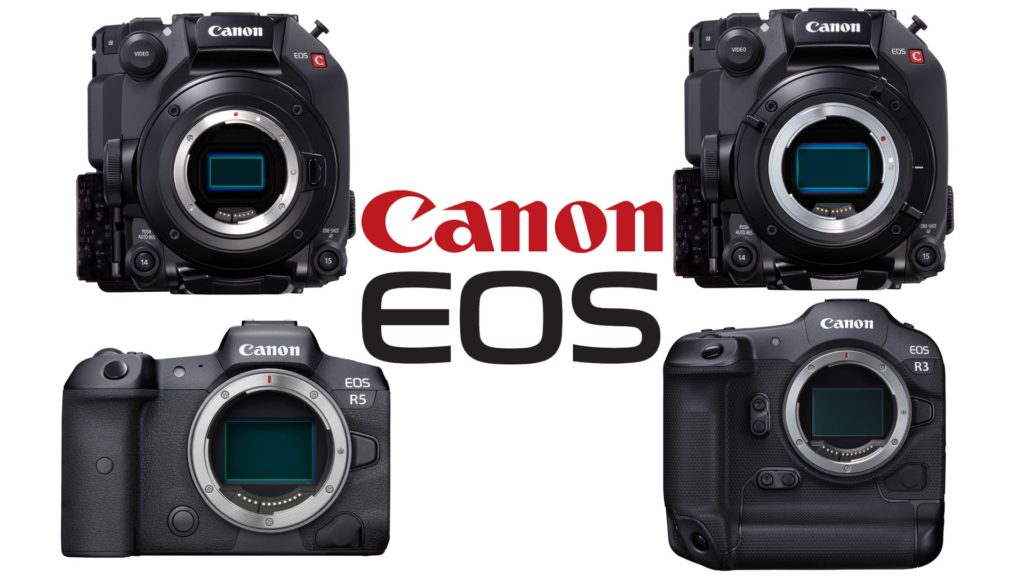
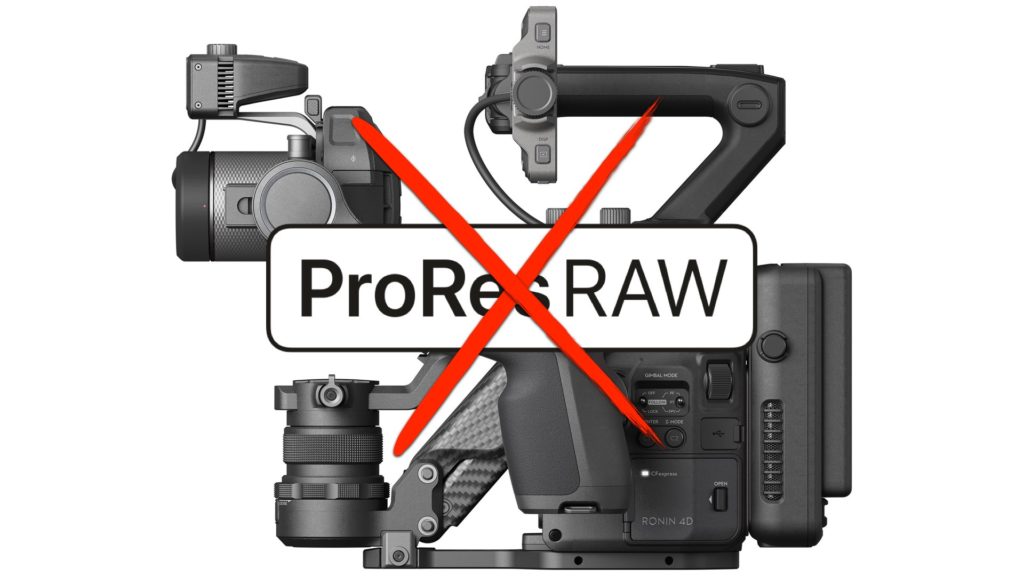
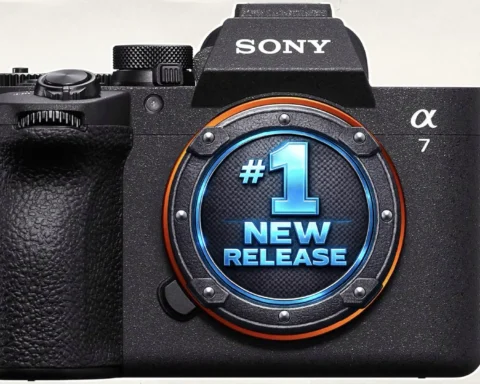
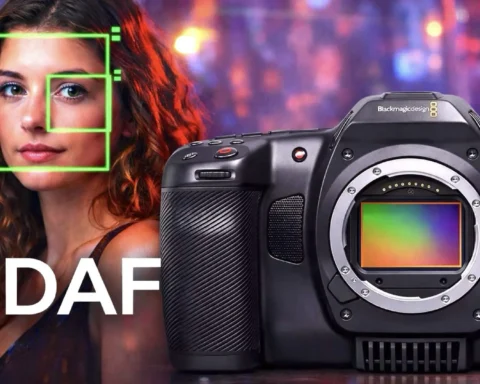
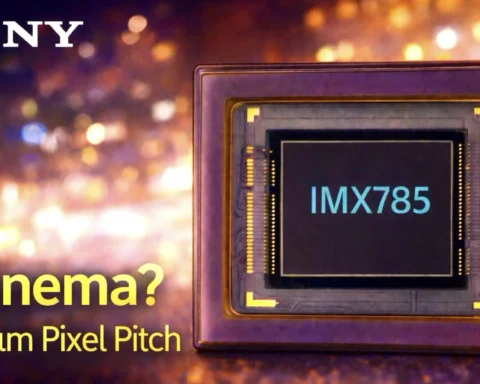
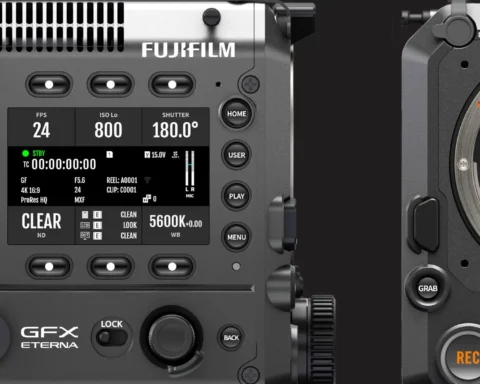
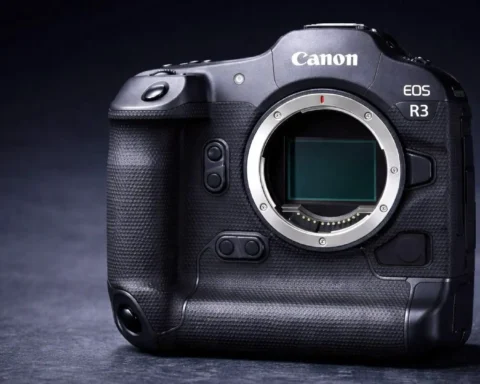


Why do I suspect that Red must have really pissed off Canon with their RAW patent terrorism and now Canon is going to eat them alive? Nothing sends the message “I will take your customers” like copying a camera design.
I’m not convinced that Red won’t sue Canon over this.
Canon is #3 in the entire world in number of new patents filed every year, and they have more attorneys than RED has employees. If Jim Gennard started a war with Canon, it was a mistake to do so.
Like my friend Ellis McPickle says you start a patent war with them you might as well be going against the columbian cartel.
I don’t think the size of the opponent matters to Red. In 2013 Red and Sony sued each other for patent infringement. Ultimately, both companies dropped their suits. In 2019, Apple sued Red to invalidate some of its REDCODE RAW patents. Apple lost.
BROADCAST “BOX” CAMERAS FROM PANASONIC, SONY, CANON, HITACHI, ETC THAT USE THE SAME FORM FACTOR AND APPEAR IDENTICAL HAVE BEEN AROUND FOR DECADES. IT’S MUCH MORE IMPORTANT WHAT’S INSIDE. Internal NDs already an improvement over Komodo. And Full frame sensor (probably not stiched vs. Raptor) with possibly even larger sensors. The only somewhat unusual thing are the protrusions on the front, which is kind of logical to get better mounting points without increasing total body size/weight. Batteries at the back and monitor on the top just make sense considering how you normally hold a “boxy” camera. Non-adjustable screen minimizes hinges/failure points – important on these crashcam style cameras. Sorry for the caps lock – didn’t mean to yell but don’t feel like retyping.